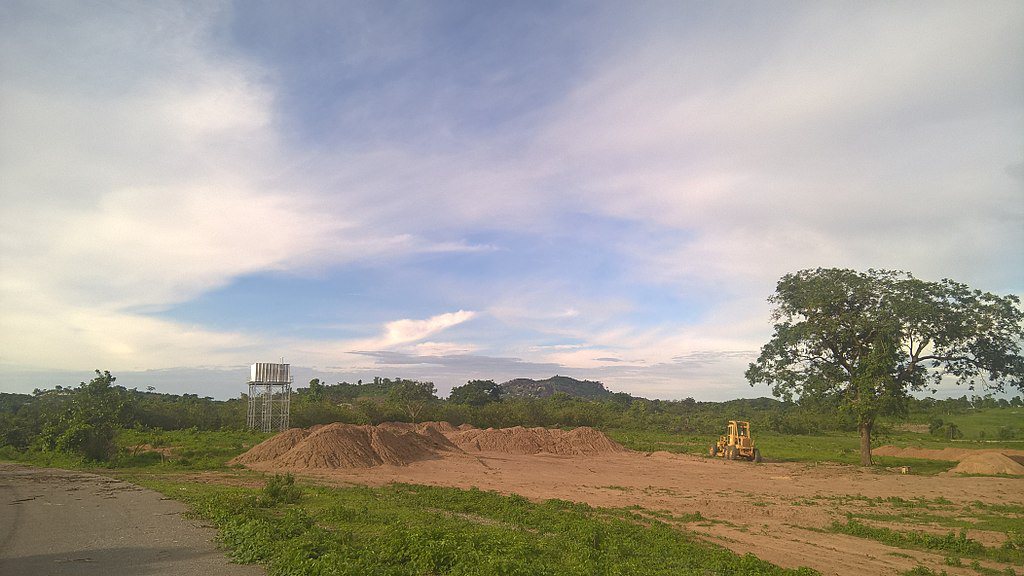It is a world full of risks, some have severe impact whereas others could be mild, but at one point in time, these risks might still crystallize or happen; irrespective of the mitigations put in place. Moreover, how fast we bounce back from this shock will determine how long we can survive.
In the agricultural sector, in developing countries, farmers (especially smallholders) are faced with an avalanche of challenges that have limited their ability to continue and scale their enterprise. These challenges have been amplified by the increasing population: more mouths to feed and less land to cultivate. New technologies are being developed to increase productivity and efficiency but only few farmers continue to adopt and continue the usage of such technologies. Because it has been very difficult for many farmers to survive the harsh economic reality, and thus, there is a need to build more resilient smallholder farmers that can survive, strive and thrive.
In this day and time, resilience should be a fundamental skill every farmer should have as a result of the many challenges and shocks being experienced by them. From the impact of COVID 19 that affected the supply chain, to the increasing impact of climate change that have caused monumental failure or loss at primary production, to the increasing number of intercountry wars and conflicts that are distorting the supply chain to policies and economic malfunctioning that have impacted the purchasing power and limited the access and business of food amongst many other challenges. This raises a question: How do farmers survive in this type of situation? The cost of surviving is very high and many are not well prepared to survive such and this is a big threat to our food security. Thus, there is a need to build more resilience in the sector; the ability of value chain actors to bounce back irrespective of the shocks (internal or external) in order to sustain the food system. Therefore, we need to build more farmers with better social capital to strive and thrive. Also, we need to promote farmers working together as cooperatives or groups to build more cohesiveness for negotiation and group marketing.
It is time to build more farmers that are connected by shared values and goals within our ecosystem. As stakeholders, we need more work to do to set the pace in building their interest and ensuring they see the bigger picture. Building resilience is not a day's job but it starts with the idea of a person or group of persons to help future proof the sector and its actors from avoidable risks and help to build more hopeful and helpful farmers that strongly believe that food security is achievable in their time. The more resilient the farmers are, the better the food system is future proof.
We need to start the real work today!
Yours-in-Service
Babatunde
In this day and time, resilience should be a fundamental skill every farmer should have as a result of the many challenges and shocks being experienced by them. From the impact of COVID 19 that affected the supply chain, to the increasing impact of climate change that have caused monumental failure or loss at primary production, to the increasing number of intercountry wars and conflicts that are distorting the supply chain to policies and economic malfunctioning that have impacted the purchasing power and limited the access and business of food amongst many other challenges. This raises a question: How do farmers survive in this type of situation? The cost of surviving is very high and many are not well prepared to survive such and this is a big threat to our food security. Thus, there is a need to build more resilience in the sector; the ability of value chain actors to bounce back irrespective of the shocks (internal or external) in order to sustain the food system. Therefore, we need to build more farmers with better social capital to strive and thrive. Also, we need to promote farmers working together as cooperatives or groups to build more cohesiveness for negotiation and group marketing.
It is time to build more farmers that are connected by shared values and goals within our ecosystem. As stakeholders, we need more work to do to set the pace in building their interest and ensuring they see the bigger picture. Building resilience is not a day's job but it starts with the idea of a person or group of persons to help future proof the sector and its actors from avoidable risks and help to build more hopeful and helpful farmers that strongly believe that food security is achievable in their time. The more resilient the farmers are, the better the food system is future proof.
We need to start the real work today!
Yours-in-Service
Babatunde
Related



